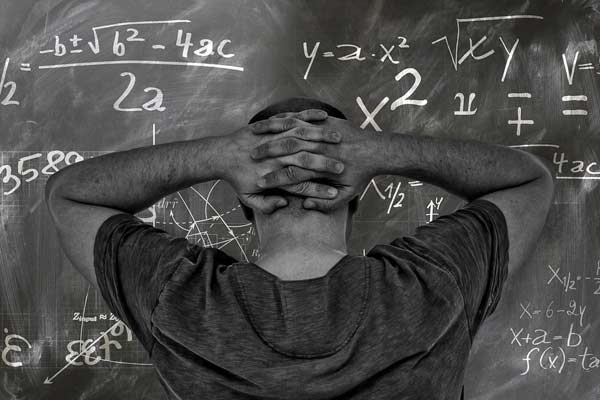Is IB Physics Hard? Expert Insights and Analysis
IB Physics is widely considered one of the most challenging courses the International Baccalaureate (IB) program offers.
It requires students to have a strong foundation in mathematics problem-solving skills and a deep understanding of the physical concepts involved.
The difficulty level of IB Physics is evident because it is often cited as one of the most challenging courses offered by the IB program.
Students who take IB Physics are expected to be able to apply their knowledge of mathematics and physics to solve complex problems and to understand the underlying principles behind the physical phenomena they study.
While IB Physics is challenging, it is not impossible to achieve a high grade. Students willing to put in the time and effort required to master the material can earn a 7 in IB Physics.
However, achieving this grade requires a strong work ethic, excellent time management skills, and a growth mindset.
One of the reasons why IB Physics is so difficult is that it covers a wide range of topics, from mechanics and thermodynamics to electromagnetism and quantum mechanics.
Students must understand and apply these concepts to various situations, which can be challenging.
Moreover, IB Physics asks students to think deeply and use their knowledge in practical situations. They need to understand the core ideas and believe in innovative ways.
Standard Level Vs Higher Level
IB Physics is offered in Standard Level (SL) and Higher Level (HL). While both levels cover the same topics, HL covers more material in greater depth and complexity. Here are some key differences between the two levels:
Curriculum
The IB Physics SL syllabus covers six core topics, while the HL syllabus covers the same six topics plus five additional topics. The other topics covered in HL are:
🌟 Hey Students! 🚀 Ready for the ultimate experience? Join us on Studentsinside.com's Facebook, YouTube, WhatsApp, and LinkedIn. Click now for tips, fun, and success vibes! 🌈✨ #StudentLife #JoinUs
- Wave phenomena
- Fields
- Electromagnetic induction
- Quantum and nuclear physics
- Option topic
The option topic in HL allows students to choose one of the following areas of study:
- Astrophysics
- Communications
- Imaging
- Medical Physics
- Relativity
Exam
SL and HL exams consist of three papers, but the HL exams are longer and more challenging. For example, Paper 1 of the HL exam includes more multiple-choice questions and requires more mathematical calculations than Paper 1 of the SL exam.
Time commitment
The IB recommends that SL students spend 150 hours on the course, while HL students should spend 240 hours. This reflects that HL students have more material to cover and are expected to go into greater depth.
Difficulty
While HL is harder than SL, SL is more complicated. Both tiers need solid math skills and problem-solving abilities. However, those in HL are anticipated to delve deeper into concepts and handle more intricate scenarios.
Key Areas of Study
IB Physics teaches topics like mechanics, measurements, and uncertainties. These subjects are vital to understanding physics and preparing for the IB Physics tests.
Mechanics
Mechanics is one of the most critical areas of study in IB Physics. It covers the fundamental principles of motion, force, and energy. Some of the key topics in mechanics include:
- Kinematics: It explores motion without delving into the forces that initiate such movement.
- Dynamics: The study of motion and the forces that cause it.
- Work, Energy, and Power: The study of the relationship between work, energy, and power.
- Circular Motion: The study of motion in a circular path.
Measurements and Uncertainties
Measurements and uncertainties are also essential areas of study in IB Physics. Students learn to make accurate measurements and account for their measurements’ uncertainties. Some of the key topics in this area include:
- Measurement: The study of how to make accurate measurements and use measuring instruments.
- Uncertainties: The study of how to calculate uncertainties and how to account for them in measurements.
- Vectors and Scalars: The analysis of vector and scalar quantities and how to use them in calculations.
Exam Structure and Technique
The IB Physics exam consists of papers: Paper 1, Paper 2, and Paper 3. Paper 1 is a multiple-choice paper, while Papers 2 and 3 are structured questions. Paper 1 is worth 30% of the final grade, while Papers 2 and 3 are 40% and 30%, respectively.
Students must understand the exam structure and technique well to perform well in the IB Physics exam. This means knowing how to approach each paper, manage time effectively, and answer questions appropriately.
For Paper 1, students must review old exam questions and understand the test format. They should also learn to use their 45 minutes wisely since they must answer 30 multiple-choice questions. Reading each question closely and ruling out clear wrong choices can help improve their chances of picking the correct answer.
For Papers 2 and 3, students should review previous exam questions to know what to expect. It’s essential to understand how to organize answers clearly and briefly and to include relevant diagrams and calculations when needed.
Students should also pay attention to the grade boundaries for each paper to ensure they are aiming for the correct level of achievement. For example, to achieve a grade 7 in Paper 1, a student needs to score at least 27 out of 40 marks.
Resources for Studying
Studying for IB Physics can be challenging, but many resources are available to help students succeed. Here are some recommended resources to aid in learning for IB Physics:
Study Guides
One of the most helpful resources for studying IB Physics is a study guide. A good study guide will provide a comprehensive overview of the IB Physics syllabus and detailed explanations of key concepts, worked examples, and practice problems.
For IB Physics, two suggested books are “Physics for the IB Diploma” by K.A. Tsokos and “IB Physics Study Guide: 2014 Edition” by Tim Kirk. They can be beneficial.
IB Physics Tutors
Students who struggle with certain concepts or need extra help may consider working with an IB Physics tutor. Tutors can provide one-on-one support and guidance tailored to the student’s needs. Students can find IB Physics tutors through online tutoring platforms or by asking their school’s IB coordinator for recommendations.
Syllabus and Revision Guides
The IB Physics syllabus outlines the topics covered on the exam. Students should use the syllabus as a study guide, reviewing each topic thoroughly. Revision guides can also provide condensed summaries of each topic and practice questions and answers.
Past Papers
One of the best ways to prepare for the IB Physics exam is by practicing with past papers. Past papers give students an idea of the questions that may appear on the exam and an opportunity to practice applying their knowledge to different scenarios. Students can find past papers on the IB website or by asking their teacher for copies.
Preparation for University and Beyond
IB Physics is a challenging course that requires dedication and hard work. However, the effort put into this course can pay off in the long run, especially when preparing for university and beyond.
For students thinking about studying engineering, taking IB Physics is essential. Many universities require Physics HL for their engineering courses. Even if you’re not looking into engineering, having Physics HL is a great way to show you can manage tough classes.
Students should focus on mastering the fundamental concepts covered in IB Physics to prepare for university. This includes topics such as mechanics, waves, and electromagnetism. Students should develop strong problem-solving skills and be comfortable working with mathematical equations.
After university, studying Physics can lead to many job options. People with a Physics degree can work in areas like engineering, research, or teaching. Plus, knowing Physics can help if you want to work in medicine, law, or business.
Workload and Time Management
IB Physics is a challenging subject that requires a significant amount of time and effort. Students must be prepared to put in the necessary work to succeed in this subject.
The workload in IB Physics is intense, and students must be prepared to manage their time effectively. Students should be prepared to spend at least 3-4 hours per week on Physics homework and assignments.
In addition, there are labs, group projects, and individual study time for which students must allocate time. Setting a schedule and sticking to it is essential to ensure all the work is completed on time.
Students should prioritize their tasks and focus on their strengths to manage the workload. For example, if a student is strong in mechanics, they should focus on mastering that topic first. This will help them build confidence and momentum, making it easier to tackle more challenging topics later on.
It is also essential to catch up on missed work immediately. Physics is a subject where topics build on each other, so staying on top of the material is crucial.
If a student needs to catch up, they should work on catching up as soon as possible. This can be done by attending extra help sessions, working with a tutor, or reviewing the material independently.
Individual study time is also essential for success in IB Physics. Students should set aside time weekly to review their notes, work on practice problems, and study for exams. This will help them reinforce the material and identify areas for additional help.
Additional Support and Materials
IB Physics is a challenging subject, but with the proper support and materials, students can excel in it. Here are some resources that can help students succeed:
Teachers
Teachers are vital for IB Physics students. They help explain, clear up ideas, and guide problem-solving. If students need help, they should ask their teachers. Teachers can also suggest extra materials to help students grasp the topic better.
Materials
There are many materials available that can help students prepare for the IB Physics exam. Textbooks, study guides, and online resources can provide additional explanations, practice problems, and tips for success. Students should choose materials aligned with the IB Physics syllabus and covering the topics they are struggling with.
Spanish B and TOK
IB Physics students taking Spanish B or Theory of Knowledge (TOK) can use these classes to support their understanding of physics.
Spanish B can help students improve their communication skills, which can be helpful when explaining complex physics concepts.
TOK can help students develop critical thinking skills and explore the philosophical implications of physics.
r/IBO
The r/IBO subreddit is a community of IB students, alumni, and teachers who share resources, advice, and support. IB Physics students can find helpful resources on the subreddit, including study guides, practice problems, and tips for success. They can also ask questions and receive feedback from other students and teachers.
Alumni
IB Physics alumni can provide valuable insight and advice for current students. They can share their experiences, offer tips for success, and guide how to approach the exam. Students can reach out to alumni through social media, alumni networks, or their school’s alumni association.
Advanced Problem-Solving in IB Physics
IB Physics is a tough course that needs good problem-solving abilities. The class helps students use science rules and ideas to answer hard questions. Students should be good at math and solving problems to do well in IB Physics.
The IB Physics curriculum covers many topics, including mechanics, waves, electricity, magnetism, and quantum physics. Each topic requires a different set of problem-solving skills.
For example, mechanics problems often involve analyzing forces and motion, while electricity and magnetism problems require understanding electric and magnetic fields.
To develop advanced problem-solving skills, students in IB Physics are encouraged to use various problem-solving strategies. These strategies include:
- Identifying the relevant principles and concepts
- Drawing diagrams and graphs
- Analyzing the problem and breaking it down into smaller parts
- Applying mathematical equations and formulas
- Checking the answer for accuracy and validity
In simpler terms, IB Physics students should work together and ask for help if they’re stuck. The course highlights the value of thinking critically and creatively solving problems.
Statistical Analysis in IB Physics
Statistical analysis is crucial in interpreting experimental data and drawing conclusions in IB Physics. Students are expected to have a solid understanding of statistical concepts and techniques to succeed in the subject. Here are some of the statistical concepts that students learn in IB Physics:
Uncertainties and Errors
Uncertainties and errors are inherent in all measurements and experiments. Students learn how to calculate uncertainties and errors in measurements and how to propagate them through calculations. They also learn to distinguish between random and systematic errors and minimize them.
Graphical Analysis
Graphical analysis is an essential tool in IB Physics. Students learn how to plot data on graphs and analyze graphs to extract information. They also learn how to calculate slopes and intercepts of lines and how to determine uncertainties in these values.
Statistical Tests
Statistical tests help us see if there’s a meaningful difference between what we observe and what we expect. Students learn to do tests like t-tests and chi-squared tests and understand what the outcomes mean.
Data Presentation
Data presentation is an essential aspect of IB Physics. Students learn how to present data in tables and graphs and how to choose the appropriate type of graph for a given set of data. They also learn to label and title graphs and include error bars and uncertainties.
The Ultimate IB Physics Internal Assessment Guide
The IB Physics Internal Assessment (IA) is an independent experiment that students must perform and report on as part of their Diploma Programme. It can be a daunting prospect, but with the proper guidance, it can be a fulfilling and rewarding experience.
GradePod offers a comprehensive and informative document called “The ULTIMATE IB Physics Internal Assessment Guide” as a free eBook. This 52-page guide covers everything from choosing a topic to structuring the report, sample reports, and examiner tips.
The guide breaks down the IA into sub-sections: Introduction, Research Question, Theory and Hypothesis, Variables, Diagram, Apparatus, Method, Raw Data, Processed Data, Graph, Analysis and Conclusion, Evaluation, and References. Each sub-section is explained in detail, with clear instructions on how to tackle each one.
The guide also includes Examiner Do’s and Don’ts, which provide valuable insights into what examiners seek in an IA. For example, examiners want to see a clear research question, a well-designed experiment, accurate data, and a thorough analysis of the results.
Final Grade and Scoring
In the International Baccalaureate (IB) program, students can get scores between 1 and 7, with seven being the best. For IB Physics, the final score comprises three written tests and hands-on work. Both Paper 1 and Paper 2 make up 40% of the final score. Paper 3 and the hands-on work each count for 10%.
IB Physics exams test students’ understanding and ability to use their knowledge in problem-solving. Paper 1 has multiple-choice questions, and Paper 2 has structured questions.
Paper 3 is a data-based question where candidates are given a data set and asked to analyze and interpret it. Practical work involves conducting experiments and writing lab reports.
To calculate their final grade in IB Physics, candidates’ scores in each paper and practical work are converted to a percentage. These percentages are combined using the abovementioned weightings to give an overall percentage score.
Next, the IB grade boundaries are used to determine the final grade. The IB sets these grade boundaries and varies for each examination season.
Scoring a 7 in IB Physics is challenging, as the subject requires a strong understanding of advanced concepts and problem-solving skills. However, with dedicated study and practice, achieving a high score in IB Physics is possible.
Possessing a comprehensive understanding of the curriculum, selecting and applying relevant information, and competently analyzing and evaluating data are some of the basic requirements for scoring a 7 in IB Physics.








